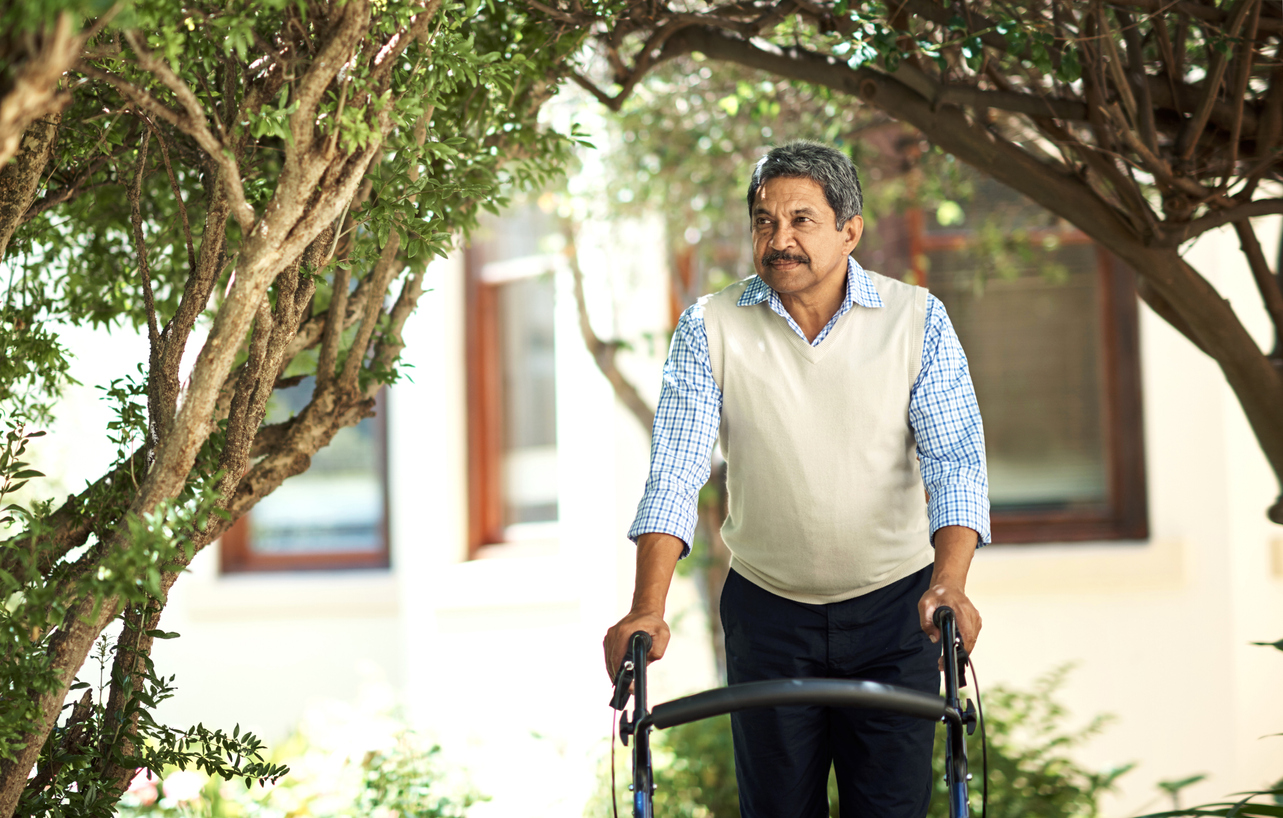These last few months have been a lonely time for many of us, as social distancing has kept us apart from family members, friends, and colleagues.
The unfortunate reality is that an overwhelming number of older adults were already experiencing feelings of loneliness prior to the onset of COVID-19. According to Statistics Canada, as many as 1.6 million older adults in our country reported feeling lonely in 2016. With an increasing number of Canadians entering their senior years and social distancing being part of our daily lives for the foreseeable future, this issue is a growing area of concern.
It is important to make the distinction between loneliness and social isolation. According to The National Seniors Council, social isolation can be defined as a low quantity and quality of contact with others whereas loneliness is the perceived lack of interaction and contact with others. While social isolation certainly contributes to feelings of loneliness, a person can feel lonely even when they are in the company of others.
There are a number of different factors which can contribute to social isolation and loneliness. As we age, older adults may experience the loss of a spouse and many of their close friends. Our children grow into adults and leave the nest with their own busy lives to lead. Older adults may be living with one or more chronic conditions that makes social outings more difficult, or they may be worried about falls and find themselves going out less or not at all. Other factors may include the loss of a driver’s licence or changes to their economic status.
What can be done to address social isolation and loneliness in older adults, especially while we are in the midst of a pandemic? Trying a new hobby or volunteering can be a great way to connect with your community, but these options may be limited right now. Given our current circumstances, the role of technology becomes more important than ever before. Video conferencing tools, email, and social media all provide opportunities to stay connected with loved ones.
While advancements in technology help us to connect in ways we never imagined were possible, do not forget about the telephone! Talking on the phone remains a great way to keep in touch with family and friends. Senior Centre Without Walls through A&O Support Services for Older Adults also provides free educational and recreational programs by phone at no cost and reaches out to isolated older adults in Manitoba.
Seniors who are concerned about falls may want to consider subscribing to a medical alert service such as Victoria Lifeline. Victoria Lifeline wants to reassure Manitobans that the 24-hour Lifeline response centres are open and ready to help. For new clients, they offer installations with a trained professional or free delivery of the Lifeline equipment right to your door. To find a service plan that is right for you or to learn more about fall detection technology, please visit their website at VictoriaLifeline.ca.
As part of the incredible care they provide, home care workers also help older adults to feel socially connected through companionship and friendly conversation. This personal interaction can have a positive impact on an individual’s health and well-being. Our home care heroes have continued to help our community stay safe and independent throughout the pandemic and are truly deserving of our gratitude for all they do!
At our core, we as humans are inherently social and it is our connection with each other that makes us who we are and helps us thrive. If you know someone who may be isolated or feeling lonely right now, consider reaching out. A simple phone call or email may help to brighten their day - and yours.
This article is meant to be informational in nature and should not replace the advice of a trained healthcare professional.



